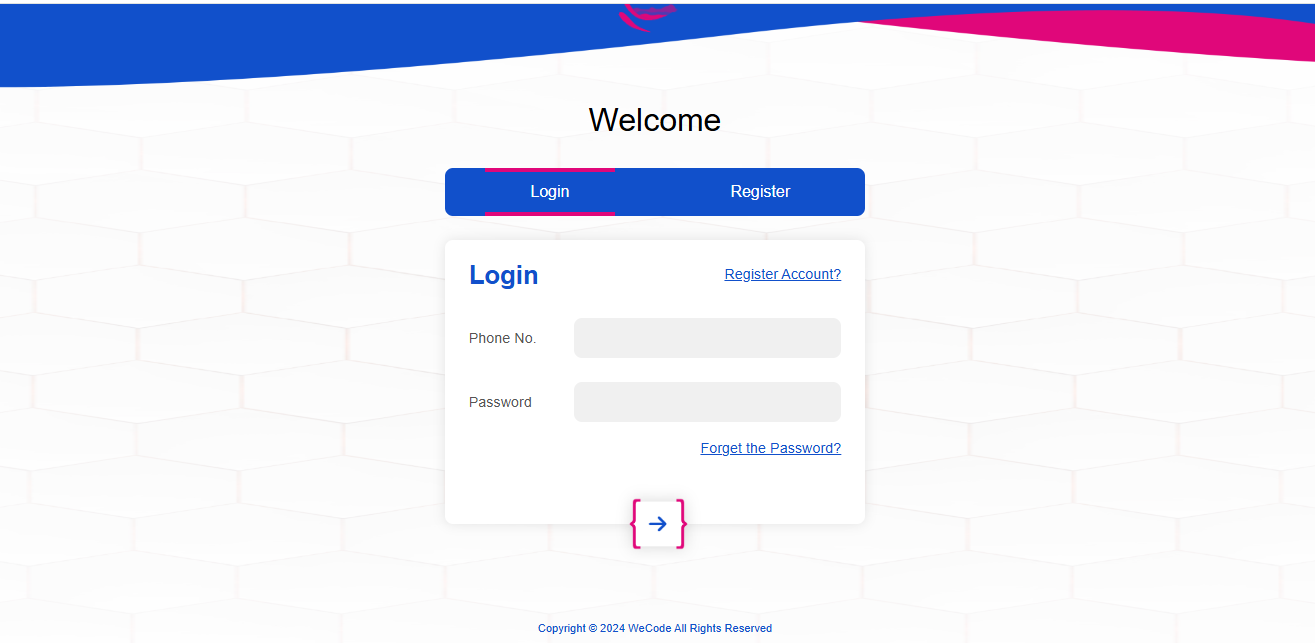Reported As Possible Scam
-
Search Results
-
 Recently, I encountered a trading scam through Wecode-app.com, a fraudulent platform that masquerades as a legitimate cryptocurrency and forex trading site. The platform lured me in with promises of high returns, convincing advertisements, and a professional-looking website. Unfortunately, I fell victim to their tactics and lost a substantial amount of cryptocurrency, including 0.21472 ETH and 0.12305 ETH, to their receiving address:
Recently, I encountered a trading scam through Wecode-app.com, a fraudulent platform that masquerades as a legitimate cryptocurrency and forex trading site. The platform lured me in with promises of high returns, convincing advertisements, and a professional-looking website. Unfortunately, I fell victim to their tactics and lost a substantial amount of cryptocurrency, including 0.21472 ETH and 0.12305 ETH, to their receiving address:  0x88c48529fa87c2f79150d97f37dbf733a5a4dd0c
0x88c48529fa87c2f79150d97f37dbf733a5a4dd0c .
How the Wecode-app.com Scam Operated
Wecode-app.com appeared authentic and trustworthy at first. The website was professionally designed, with sleek graphics and well-crafted pages that showcased success stories, purported earnings, and “official” partnerships. They advertised high returns through a variety of trading strategies in both cryptocurrency and forex markets, claiming that investors could earn guaranteed profits with minimal effort.Once I registered on the platform, the onboarding process seemed normal, and I was encouraged to deposit funds to start trading. After my deposit of 0.21472 ETH followed by 0.12305 ETH, Wecode-app.com displayed “promising results” in my account, showing an increase in earnings that appeared legitimate. However, things changed drastically when I attempted to withdraw my funds. My withdrawal requests were repeatedly blocked, and customer support ceased responding altogether. At this point, I realized the entire platform was fraudulent.
Warning Signs of the Scam
Looking back, there were some clear warning signs on Wecode-app.com that I missed, and I hope highlighting these will help others avoid falling for similar scams:Unrealistic Return Promises: Wecode-app.com promised high, guaranteed returns on both crypto and forex trading. Legitimate trading platforms don’t offer “risk-free” returns, as financial markets inherently involve risk.
Fake Success Stories and Testimonials: The site prominently featured fake success stories and testimonials from supposed users claiming extraordinary gains, which are often fabricated to lure victims.
Restricted Withdrawals: In many crypto scams, platforms allow deposits and initial “gains” but block withdrawals. Wecode-app.com exhibited this pattern, a major red flag.
Unresponsive Support: Once my funds were deposited, customer support became increasingly evasive and, eventually, entirely unresponsive. Scam sites often cut communication once funds are secured.
Professional-Looking but Deceptive Website: A well-designed website can easily mislead users, but it’s not a guarantee of legitimacy. Scammers often invest in professional-looking platforms to build trust quickly.
Protect Yourself from Similar Scams
To avoid becoming a victim of scams like Wecode-app.com, here are some crucial tips to keep in mind:Verify Platform Legitimacy: Research the platform thoroughly before investing. Check for reviews, ratings, and feedback from reputable sources.
Watch Out for Unreasonable Returns: Be skeptical of platforms promising guaranteed or unusually high returns. Real trading always involves a level of risk, and no legitimate platform can guarantee profits.
Test Withdrawals Early: Before investing large sums, try making a small deposit and test the withdrawal process to gauge the platform’s reliability.
Avoid Unverified Platforms: Legitimate crypto exchanges and trading platforms are often regulated and well-established. Avoid lesser-known, unverified platforms with limited online presence or credibility.
Key Takeaways
My experience with Wecode-app.com has been a painful lesson, but I hope sharing it will help others avoid similar scams. Remember, even a professional-looking website and smooth onboarding process do not guarantee that a platform is legitimate. Stay cautious, thoroughly research all platforms, and never invest money you can’t afford to lose. By staying vigilant and watching for these warning signs, you can better protect yourself from falling victim to fraudulent trading schemes.I recently encountered a troubling experience on wecode-app.com, a website falsely claiming to offer crypto mining services. Initially, the site presented itself with a professional design, promising substantial returns on mining investments. However, after depositing $850, I soon discovered that this platform is nothing more than a scam, designed to deceive users and exploit their funds without delivering any of the promised mining services.

Receiving Address Involved in Fraud
The funds I sent were directed to the Ethereum address
 0x88C48529fa87c2F79150d97f37Dbf733A5a4dD0c
0x88C48529fa87c2F79150d97f37Dbf733A5a4dD0c . Subsequent research into this address indicates multiple transactions tied to similar scams, suggesting that this account is a repeat offender within fraudulent schemes. The mining returns promised never materialized, and any attempt to contact their customer support met with silence or evasive responses.
Red Flags and Deceptive Practices
wecode-app.com employs several tactics to create a facade of legitimacy. These include fake mining progress bars, countdown timers for ‘earnings releases,’ and generic customer testimonials with no verifiable details. Despite numerous appeals for transparency on their mining operations, the site provides no evidence of actual mining hardware or facilities, which is critical for any genuine mining operation. Adding to the suspicion, the website also uses vague terms and conditions, with loopholes to disclaim responsibility for user losses.
Conclusion
Avoid wecode-app.com at all costs. This platform exploits the growing interest in crypto mining to mislead users into investing money with no return. If you encounter this site or similar platforms, remember to perform thorough research and verify the authenticity of the mining operation before committing funds.
